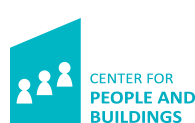Appreciation flexible ways of working varies widely
27 november 2014
On November 5, the Amsterdam Business Research Institute (ABRI) celebrated its 5th anniversary with a symposium on the changes and challenges surrounding work and the work environment. One of the speakers at the event was Iris de Been of the CfPB. She presented an overview of the most striking findings of the CfPB on flexible workplace concepts, a summary:
- Employees in flexible (activity related) working environments often are more satisfied with the interior and the look of their surroundings, the layout of the work environment and the mix of workplaces offered. However, compared to more traditional cellular offices, people are less satisfied with their ability to concentrate, privacy, archiving facilities and the indoor climate. This while a number of these aspects, such as concentration and privacy, are the most important aspects of the working environment to support the individual productivity.
The reason why ‘communication’ does not feature in the list of positive or negative points, is probably because both positive effects (more meetings, seeing various colleagues) and negative effects (less contact with direct colleagues, difficult to find colleagues) are experienced by the users of flexible work environments.
To illustrate that many different factors are important to create a successful flexible concepts, two cases with similar office concepts (in terms of interior and rules of conduct), but with very different results were used. Aspects such as supportive management behavior, the implementation process and simply taking each other into account (not claiming workstations) were mentioned as essential elements.
It is evidently also the case that individuals perceive and appreciate their office environments differently, depending on aspects like personal characteristics, habits, frame of reference, and age.
- Prominent in the results of the CfPBs research is that respondents aged 50 years and older perceive flexible concepts as less supportive of their productivity (compared to a traditional cellular office), while respondents of 31 years or younger do not (they are positive about both concepts).
- Interestingly, a recent study shows that amongst WODI respondents that work in a flexible concept, about half never change workplaces. Only 5% changes places several times a day, as intended in the workplace concept. This group is at the same time very positive about the work environment. These people also have somewhat different ‘activity patterns’: they are working relatively often outside the office. And when in the office, they spend relatively much time in meetings. So does flexible working especially fit these kinds of employees, or do they represent the workers of the future?
[1] de Been, I. & Beijer, M. (2014). The influence of office type on satisfaction and perceived productivity support. Journal of Facilities Management, 12(2), pp. 142-157.
[2] Pullen, W. R., De Been, I., Steenaart, E. & Den Hollander, D. (2014). Age, office type, job satisfaction and job performance. Work & Place, September 2014, p. 18-22.
[3] Hoendervanger, J., de Been, I., van Yperen, N. W. & Mobach, M. P. (forth coming). Flexibility in use: Individual differences in the use and perception of activity-based office environments.
